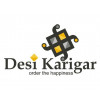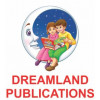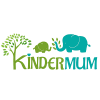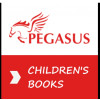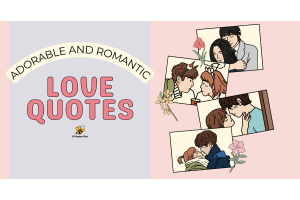The Enchanting Adventures of Mythology: A Captivating Short Story Collection

Step into a world of enchantment and wonder with 'The Enchanting Adventures of Mythology: A Captivating Short Story Collection.' This captivating anthology takes readers on a journey through ancient myths and legends, exploring the realms of gods, monsters, and heroes. Each short story is carefully crafted to transport readers to far-off lands and immerse them in thrilling adventures.
From the mystical realms of Greek mythology to the ancient mythology of the Norse gods, this collection features a diverse range of stories that will capture the imagination of readers of all ages. Whether you're a fan of epic battles or curious about the fantastical creatures that inhabit these mythological worlds, 'The Enchanting Adventures of Mythology' promises to satisfy your thirst for adventure and intrigue.
Featuring rich and vivid storytelling, this anthology is a must-read for anyone who appreciates the timeless tales of mythology. Whether you're a seasoned mythology enthusiast or just beginning your journey into these captivating worlds, this collection will leave you spellbound. Brace yourself for a whirlwind of excitement as you traverse the realms of mythology in 'The Enchanting Adventures of Mythology: A Captivating Short Story Collection.'
Why mythology is still relevant today
Mythology has withstood the test of time because it speaks to the core of human nature. Despite the passage of centuries, the stories of gods and heroes continue to captivate us. Mythology provides a glimpse into the beliefs, values, and traditions of ancient cultures, offering us a window into their world. These stories are not mere relics of the past but hold valuable lessons and insights that are still applicable in our modern lives.
One reason why mythology remains relevant is that it explores universal themes and emotions that resonate with people across time and cultures. Love, jealousy, bravery, and betrayal are all themes that can be found in mythological stories, reminding us of our shared human experiences. By delving into the rich tapestry of mythology, we can gain a deeper understanding of ourselves and the world around us.
Furthermore, mythology allows us to explore complex moral and ethical dilemmas through the lens of gods and heroes. These larger-than-life characters grapple with choices and consequences, often facing impossible challenges. Through their trials and tribulations, we can reflect on our own lives and the choices we make. Mythology serves as a moral compass, guiding us towards a better understanding of right and wrong.
In addition to its timeless themes, mythology also sparks our imagination and sense of wonder. The fantastical creatures, epic battles, and magical realms transport us to a world beyond our own, fueling our creativity and inspiring us to dream. These stories ignite our curiosity and encourage us to explore different cultures and belief systems, expanding our worldview.
Mythology, in all its forms, whether it be Greek, Norse, Egyptian, or any other, has the power to transcend time and connect us to our shared humanity. It reminds us of our place in the grand tapestry of history and the enduring power of storytelling.
Exploring different mythological cultures
One of the most fascinating aspects of mythology is its diversity. Every culture and civilization has its own unique pantheon of gods, heroes, and mythical creatures. Exploring different mythological cultures allows us to appreciate the vastness and richness of human imagination.
Greek mythology is perhaps the most well-known and widely studied. The stories of Zeus, Hera, Athena, and the other gods of Mount Olympus have been passed down through generations, captivating audiences with their tales of power, love, and vengeance. Greek mythology offers a glimpse into the values and societal norms of ancient Greece, shedding light on their beliefs about the world and the divine.
Norse mythology, on the other hand, takes us to the frosty realms of the Vikings. The Norse gods, such as Odin, Thor, and Loki, are known for their fierce battles and epic adventures. Norse mythology is rooted in a harsh and unforgiving landscape, reflecting the struggles and resilience of the Viking people. The stories of Ragnarok, the end of the world, and Valhalla, the hall of fallen warriors, paint a vivid picture of Norse mythology's unique worldview.
Egyptian mythology transports us to the banks of the Nile, where gods like Ra, Osiris, and Isis reigned supreme. The ancient Egyptians believed in the afterlife and the importance of preserving the body through mummification. Their mythology reflects their deep reverence for the natural world and the cycles of life and death. The story of the sun god Ra traveling through the sky each day and battling the serpent Apep symbolizes the eternal struggle between order and chaos.
These are just a few examples of the vast array of mythological cultures that exist. Each one offers a unique perspective on the human experience and provides a glimpse into the values and beliefs of the people who created them. Exploring different mythological cultures allows us to broaden our horizons and gain a deeper appreciation for the diversity of human thought and imagination.
The power of storytelling in mythology
At the heart of mythology lies the power of storytelling. Through the ages, myths and legends have been passed down orally from one generation to the next, preserving the collective wisdom and cultural heritage of a society. The art of storytelling allows us to make sense of the world around us, to convey our beliefs and values, and to entertain and inspire.
Storytelling in mythology serves multiple purposes. It educates and imparts important moral lessons, teaching us about the consequences of our actions and the power of virtue. It also entertains and captivates, drawing us into a world of imagination and wonder. Whether it's the epic battles of gods and heroes or the tragic love stories of star-crossed lovers, storytelling in mythology has the ability to evoke a wide range of emotions and keep us engaged.
Moreover, storytelling in mythology serves as a vehicle for cultural transmission. It allows a society to pass down its history, traditions, and values from one generation to the next. By telling and retelling these stories, we keep our cultural heritage alive and ensure that future generations have a connection to their roots.
The power of storytelling lies in its ability to transcend time and connect us to something greater than ourselves. When we listen to or read mythological stories, we become part of a larger narrative that stretches far beyond our own lives. We become connected to the collective human experience, sharing in the joys, sorrows, and triumphs of those who came before us. In this way, storytelling in mythology becomes a bridge that links past, present, and future, reminding us of our shared humanity.
Themes and motifs in mythology
Mythology is a tapestry woven with recurring themes and motifs that transcend cultural boundaries. These themes provide insight into the human condition and reflect our deepest desires, fears, and aspirations. By examining these themes, we can gain a deeper understanding of ourselves and the world around us.
One prevalent theme in mythology is the eternal struggle between good and evil. This dichotomy is often represented through the battles between gods and monsters, heroes and villains. These stories explore the complexities of human nature and remind us that the line between good and evil is not always clear-cut. They challenge us to examine our own moral compass and confront the darkness within ourselves.
Another common motif in mythology is the hero's journey. Heroes like Odysseus, Hercules, and Beowulf embark on epic quests, facing numerous trials and challenges along the way. Their journeys mirror our own struggles and serve as a metaphor for personal growth and self-discovery. The hero's journey reminds us that we have the power to overcome adversity and achieve greatness if we are willing to face our fears and persevere.
Love and desire are also recurring themes in mythology. From the tragic love story of Romeo and Juliet to the timeless romance of Aphrodite and Adonis, mythology is filled with tales of passion and longing. These stories explore the complexities of human relationships and the power of love to inspire both great joy and profound sorrow. They remind us of the universal human desire for connection and the lengths we are willing to go to find it.
Nature and the natural world are also prominent themes in mythology. Many mythologies incorporate gods and goddesses who personify natural forces like the sun, moon, and sea. These stories reflect the deep connection ancient cultures had with the natural world and their understanding of the cycles of life and death. They remind us of our place within the larger web of life and the importance of honoring and preserving the natural world.
These are just a few examples of the themes and motifs that can be found in mythology. Each culture and civilization has its own unique stories and symbols, but at their core, they all share a common thread that speaks to the human experience. By exploring these themes, we can gain a deeper appreciation for the universal nature of mythology and the timeless truths it conveys.
The enchanting world of gods and goddesses
The world of mythology is populated by a diverse cast of gods and goddesses, each with their own unique powers, personalities, and stories. These divine beings embody the hopes, fears, and aspirations of ancient cultures, serving as both protectors and instigators of human destiny.
In Greek mythology, Mount Olympus is the celestial home of the gods. Zeus, the king of the gods, wields thunderbolts and is known for his authority and power. Athena, the goddess of wisdom, is revered for her intelligence and strategic prowess. Aphrodite, the goddess of love and beauty, captivates mortals and gods alike with her irresistible charm. These gods and goddesses are not distant and detached but are deeply involved in the affairs of mortals, often intervening in human lives and shaping the course of history.
Norse mythology also features a pantheon of gods and goddesses, with Odin, the Allfather, as the most prominent figure. Odin is associated with wisdom, war, and magic, and is known for his relentless pursuit of knowledge. Thor, the god of thunder, wields his mighty hammer Mjölnir to protect both gods and mortals from the forces of chaos. Loki, the trickster god, is a complex and unpredictable character, often causing mischief and disruption. These gods and goddesses are not immortal and all-powerful but are fallible and subject to the same passions and flaws as mortals.
Egyptian mythology has its own pantheon of gods and goddesses, many of whom are associated with specific natural forces or concepts. Ra, the sun god, is the most important deity, representing the life-giving power of the sun. Osiris, the god of the afterlife, presides over the judgment of souls and ensures their safe passage to the underworld. Isis, the goddess of magic, is known for her healing abilities and her role as the protector of children and the weak. These gods and goddesses embody the ancient Egyptians' reverence for the natural world and their belief in the cyclical nature of life and death.
The world of gods and goddesses in mythology is not just a collection of supernatural beings but is a reflection of the human experience. These divine figures embody our hopes, fears, and desires, and serve as a mirror through which we can examine our own lives. They remind us of the vastness and complexity of the universe and our place within it.
Famous mythological creatures and their significance
Mythology is teeming with a diverse array of creatures, both fearsome and fantastic, that captivate our imagination and populate the mythical realms. These creatures often serve as symbols and representations of our deepest fears, desires, and the mysteries of the natural world.
In Greek mythology, the Hydra is a mythical creature with multiple heads that regrow when severed. This monstrous serpent represents the insidious nature of evil, as it cannot be defeated through conventional means. Heracles, one of the greatest heroes of Greek mythology, famously battled the Hydra as one of his twelve labors. The Hydra serves as a metaphor for the challenges we face in life and the need for perseverance and adaptability.
The phoenix is another famous creature from mythology, known for its ability to rise from the ashes. This mythical bird symbolizes rebirth and regeneration, representing the cyclical nature of life and the hope that emerges from destruction. The phoenix reminds us that even in the face of devastation, there is always the potential for renewal and transformation.
In Norse mythology, the world is inhabited by a variety of mythical creatures, from giants and dwarves to dragons and trolls. The World Serpent, also known as Jormungandr, is a colossal serpent that encircles the world, biting its own tail. This creature represents the eternal cycle of life and death, as well as the interconnectedness of all things. It serves as a reminder of the delicate balance that exists in the natural world and the need for harmony.
The Egyptian mythology is home to fascinating creatures such as the Sphinx, a creature with the body of a lion and the head of a human or animal. The Sphinx is known for its riddles and serves as a guardian of sacred knowledge and wisdom. It challenges mortals to think deeply and reflect on the mysteries of the universe. The Sphinx symbolizes the pursuit of knowledge and the importance of introspection.
These are just a few examples of the many mythical creatures that populate the world of mythology. Each creature carries its own significance and symbolism, reflecting the values and beliefs of the cultures that created them. These creatures invite us to explore the depths of our imagination and challenge us to confront our fears and embrace the mysteries of the unknown.
Mythological heroes and their epic journeys
Mythology is replete with tales of heroic figures who embark on epic journeys, facing trials and tribulations along the way. These heroes serve as archetypes, embodying the virtues and qualities that we aspire to possess. Their journeys teach us about the transformative power of adversity and the potential for personal growth and self-discovery.
One of the most famous heroes of Greek mythology is Odysseus, the protagonist of Homer's epic poem, the Odyssey. Odysseus embarks on a perilous journey home after the Trojan War, facing numerous challenges and temptations. His journey is a metaphor for the human experience, as he grapples with the complexities of loyalty, temptation, and the search for identity. Odysseus teaches us the importance of perseverance, cunning, and humility in the face of adversity.
In Norse mythology, the hero's journey is exemplified by characters like Beowulf and Sigurd. Beowulf, a legendary warrior, battles monsters and dragons to protect his people and establish his legacy. His journey explores the themes of honor, loyalty, and the pursuit of glory. Sigurd, known as the dragon slayer,

